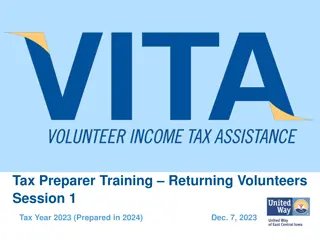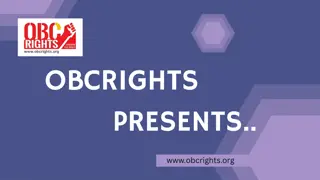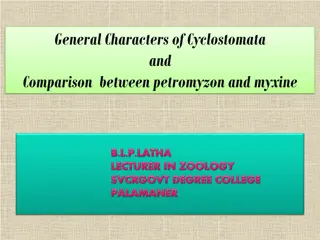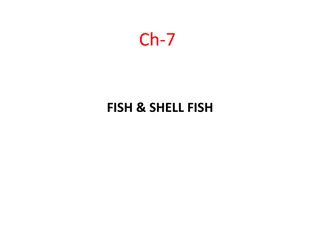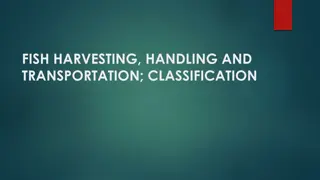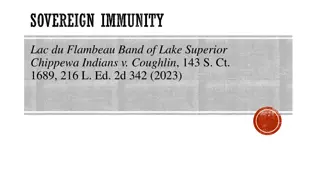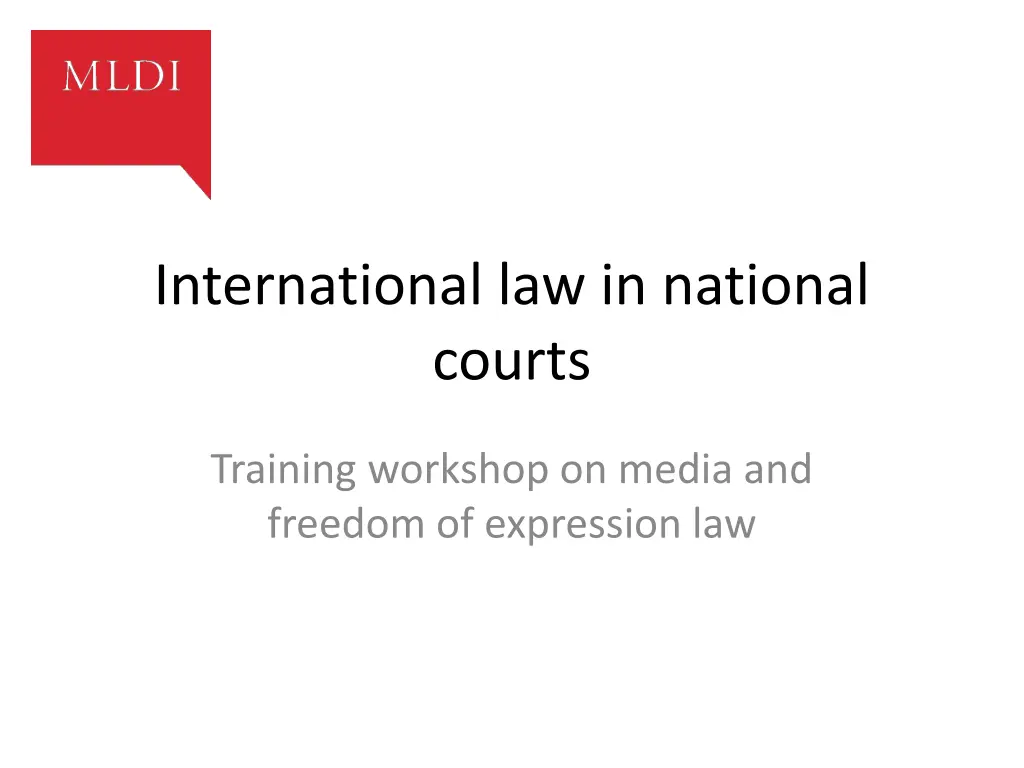
Understanding International Law in National Courts
Explore the importance of international legal standards for protecting freedom of expression and the challenges of applying them in national courts. Learn about the differences between monist and dualist legal systems and how judges in different countries interpret international norms. Discover the obstacles to using international standards in domestic courts and gain insights on litigating freedom of expression cases effectively.
Download Presentation

Please find below an Image/Link to download the presentation.
The content on the website is provided AS IS for your information and personal use only. It may not be sold, licensed, or shared on other websites without obtaining consent from the author. If you encounter any issues during the download, it is possible that the publisher has removed the file from their server.
You are allowed to download the files provided on this website for personal or commercial use, subject to the condition that they are used lawfully. All files are the property of their respective owners.
The content on the website is provided AS IS for your information and personal use only. It may not be sold, licensed, or shared on other websites without obtaining consent from the author.
E N D
Presentation Transcript
International law in national courts Training workshop on media and freedom of expression law
It has been very interesting to learn about the international legal standards for protecting freedom of expression. But what use are they in national courts?
Two types of national legal systems Monist: international law is an integral part of the national legal system and can be applied directly. Dualist: national and international systems are separate. International treaties only apply when they have been enacted into national law.
That is the theory but the reality is more complicated. What is the status of international law in the hierarchy of laws in monist countries? Judges in monist countries may require legislation to apply an international norm. Customary international law may often be applied in dualist countries, provided it does not conflict with national law.
What is the situation in your country? Is it monist or dualist ?
States are obliged to implement their international treaty obligations, whatever the nature of their own legal system the principle of pacta sunt servanda. But this may not help you if you are litigating in a national court.
Obstacles to using international standards in domestic courts Courts may not allow international obligations to be directly invoked. (The same applies, obviously, to case law from other jurisdictions.) Judges may be ignorant of international law.
It is usually a poor strategy to tell judges that they should apply international (or comparative) standards. It may be better to invoke international or comparative case law as an aid to interpreting national laws protecting freedom of expression. What is your experience in litigating freedom of expression cases in your national courts?


